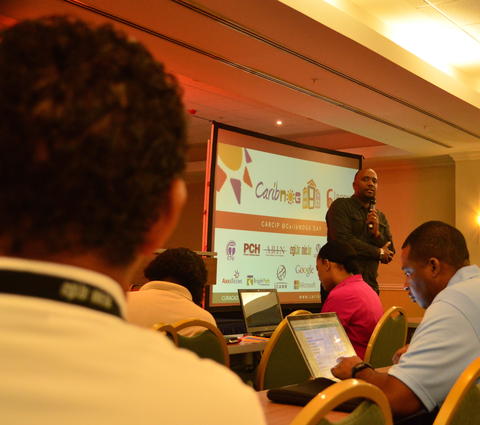Why data infrastructure upgrades are the next step in Caribbean evolution
Many Caribbean livelihoods are made and lost around seasonal fluctuations in foreigners’ travel. For much of the region, tourism, an all-too-inefficient form of intraregional human traffic, is economic lifeblood. But for one group of Caribbean islands, a different kind of traffic is generating a new model for intraregional economic partnership.
Internet traffic—data packets that move across telecommunications networks—is opening new economic possibilities to countries with a historical dependence on tourism. The governments of Grenada, St Lucia and St Vincent and the Grenadines are now working together to update their on-island Internet infrastructure, as part of a wider project to upgrade the data networks across the region.
The Caribbean Telecommunications Union has been tasked with stewardship of the project, called CARCIP, the Caribbean Regional Communications Infrastructure Program. Funded by a US$25 million-dollar allocation from the World Bank, the project has had some success in reducing the gaps in regional broadband connectivity, in order to fostering technology-based innovation.
“We have reached a considerable way towards identifying the countries’ infrastructure gaps and providing technical recommendations to address them,” said Junior Mc Intyre, head of the CTU project team.
“And we have already started the development of business incubators, skills development and certification programmes.”
Mc Intyre was addressing an audience of 100-plus regional technology experts participating in the eighth regional gathering of the Caribbean Network Operators Group, known as CaribNOG. The weeklong conference dedicated an entire day, aptly called CARCIP Day, to technical talks on strengthening and improving regional Internet infrastructure.
Christopher Roberts, CARCIP country coordinator in St Lucia, delivered the day’s opening presentation, explaining the benefits of one of the main infrastructure upgrades being implemented across the region—the Internet exchange point, known more commonly as an IXP.
The primary role of an IXP is to keep local Internet traffic local and to reduce costs associated with traffic exchanged between ISPs, Roberts said. He explained that an IXP is a facility where networks interconnect, facilitating the exchange of Internet traffic between Internet service providers.
St Lucia is the latest of eight countries to establish an IXP in the region. CARCIP coordinators Roxanne John (Saint Vincent and the Grenadines) and Alice Bain (Grenada) confirmed that their countries were also actively working on fully realising the benefits of IXP deployment at the national level.
Bevil Wooding, Internet Strategist with Packet Clearing House, said, “Globally, IXPs have been shown to improve quality of service to Internet subscribers by improving bandwidth, keeping local content local, reducing the operational cost for local data, building local economy by generating local content, encouraging entrepreneurship activity, and supporting other services such as e-government, e-learning, tax filing, multi-purpose identification cards, procurement.”
Simon Alexander, information technology manager of the Organisation of Eastern Caribbean States (OECS), said, “The CARCIP Day forum has allowed us to have targeted discussions focusing on both the strengths and the weaknesses of sub-regional infrastructure development. The interactions are already having significant impact which could only redound to the region’s benefit.”
In a post-session interview, Claire Craig, doctoral researcher at The University of the West Indies, said, “Issues of access and connectivity are already dominating the Caribbean conversation about development. There will be a growing demand for access and connectivity caused by the increase in the percentage of Caribbean people using the Internet. This trend is already well documented in ITU Statistics 2014. The implementation of IXPs will address this problem and drive regional development.”
CaribNOG 8 is co-sponsored by “LACNIC in the Caribbean 6”, an outreach initiative of the South America-based region Internet registry. Over five days, conference sessions aim to cover a range of technology topics including cyber security, cloud computing and mobile broadband.
More information on CaribNOG 8-LACNIC Caribbean 6 is available at caribnog.org and lacnic.net/web/eventos/caribbean6.
From T&T Guardian

